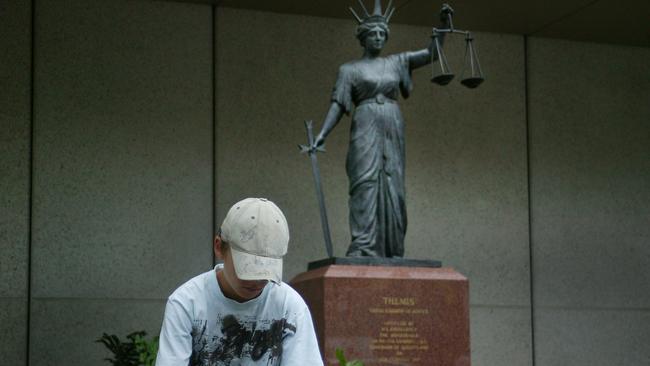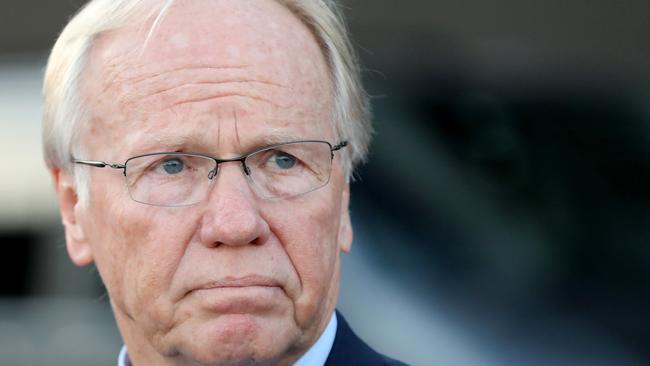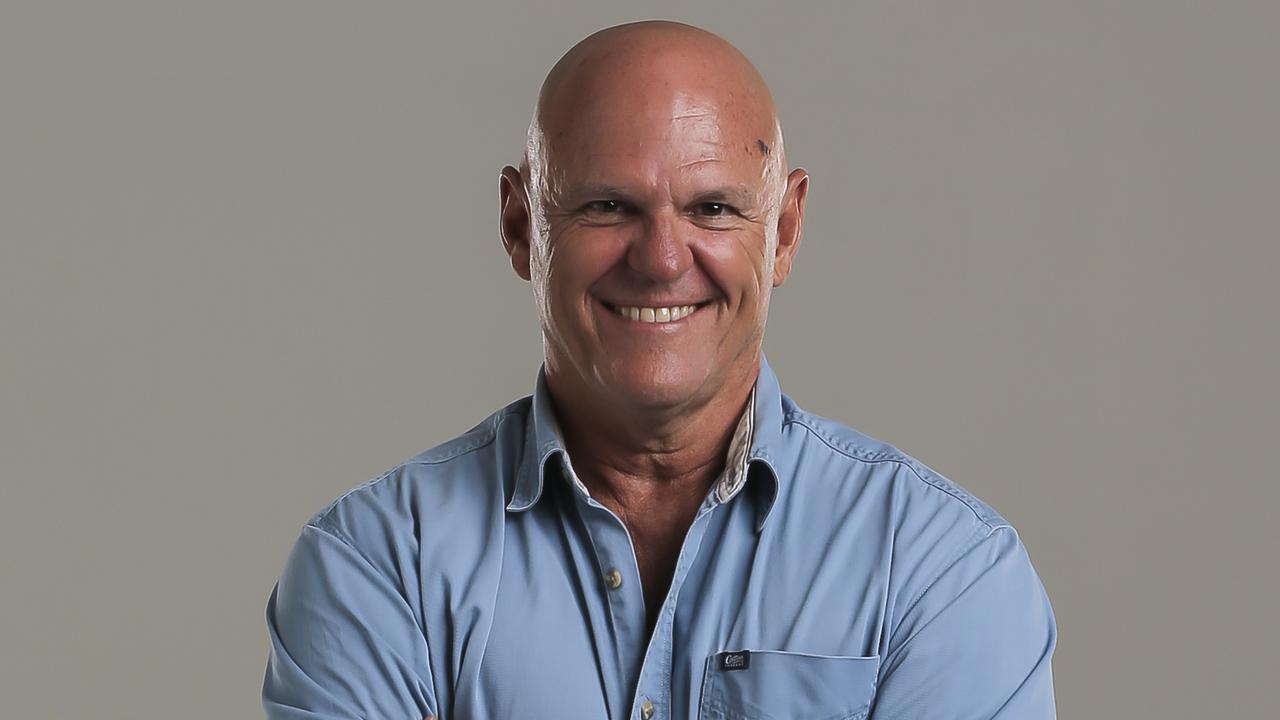Letters: Cost of youth residential care too high
Today readers have their say on the high cost of state-funded youth residential care, Peter Beattie’s double standard plan for handling the future of Mark Coyne in the ARL, and the legacy of the first man on the Moon.

Opinion
Don't miss out on the headlines from Opinion. Followed categories will be added to My News.
YOUR front-page story, “Kid’s $1.3m care bill” (C-M, Jul 22) reported that taxpayers are forking out thousands of dollars a year for each child living in residential care, with one child costing $1.3 million a year for round-the-clock government care.
This highlights the high costs incurred by taxpayers to provide psychological and material support for children, often with an cognitive or intellectual disability, who have experienced abuse and neglect or whose needs can no longer be met by their family members.
With the average cost being $347,000 per child per year, surely a more cost-effective approach could be adopted.
Notwithstanding that there are certain circumstances where the most appropriate intervention strategy is to remove the individual from the family context, as was the case of a 17-year-old with a history of abusing his younger step-siblings, we should be looking at alternative measures that are used to support the needs of these children in other jurisdictions, such as overseas.
However, alternative strategies should not be adopted unless there has been a robust and independent assessment of the evidence that supports their efficacy.
As for the Child Safety department addressing the issue of ice addiction among parents, this is a more complex problem requiring a whole of community approach.
John Quinn, Manly
IT WAS depressing to read about the number of children in State Government-funded care and youth detention centres, as well as the cost.
Then Queensland Law Society president Bill Potts, in his Matters of Justice column, made some pertinent points about the problems and described youth detention as a finishing school for a life of crime.
Help should be made available to these desperate children when they are young and their problems are noticed by teachers, healthcare workers, neighbours and relatives.
Lesley Brandis, Camp Hill
ONE does not need to have a law degree to know that sending anyone to jail, no matter what their age, will often result in a lifetime of crime.
However, what is the solution when children, aged 10 and above, are running rampant stealing cars, vandalising properties and threatening people’s lives?
Bill Potts argues that young people’s prefrontal cortex which deals with planning and impulse control is not fully formed until young adulthood.
So is he suggesting we raise the age of criminal responsibility to 24?
I certainly believe that for young people who suffer from an intellectual impairment or are battling a mental illness, there should be medical facilities available for them, and that there are not is abhorrent.
As for the other children who Potts claims don’t know what they are doing, I am not so sure.
The 12-year-old boy who punched me to the ground at the last school I taught, on his return from a mere two-day suspension, came up to me and asked me if I had enjoyed being assaulted and would I like him to do it again.
Let us not make the mistake of thinking that these “children” are poor, misunderstood innocent waifs.
Carol da Costa-Roque, Annerley
*********

BEATTIE DISPLAYS DOUBLE STANDARDS
AUSTRALIAN Rugby League Commission chairman Peter Beattie (pictured) rightly says he is determined not to rush into a decision and wants to consult with the clubs and states regarding independent commissioner Mark Coyne’s future (C-M, Jul 22).
“The Australian way... of dealing with an issue like this is to look a bloke in the eye, face-to-face and sort it out,” he says.
But Beattie couldn’t come out quickly enough to virtue signal in the Israel Folau case by ruling him out of ever playing in the NRL again, on the basis of “inclusivity”.
What double standards.
Queensland needs Folau back to win next year’s State of Origin series.
Queensland rugby league supporters should start a “Bring back Izzy” campaign.
After all, it would be the Australian way, to give a bloke a second chance.
Alan Baker, Carina Heights
*********
SPACE TRAVEL WITHIN REACH
WITH one small step for a man, Apollo 11 commander Neil Armstrong did indeed make a bold leap for all of mankind, and 50 years since that historic day, the world of space travel has moved closer to be within reach of the average man in the street.
Armstrong and his crew join that pantheon of great explorers, who, over the centuries, boldly went where no man had gone before.
There are many today who would question the value of the initial Apollo program, as it was the culmination of an ideological struggle between the two great superpowers of the time.
The paltry collection of moon rocks costing millions of dollars per gram and the limited scientific outcomes pale into insignificance when measured against the triumph of the human spirit over adversity.
Successive space missions have added to the repository of human knowledge and advancements in nearly every field of endeavour.
More than anything though, the Apollo program demonstrated what can be achieved when a nation sets a goal and provides hope for the future. In a world mired in self-indulgence, corruption, violence and national conflicts, the prospect of space travel for the masses provides the hope for a better future for all.
Space-related activities will in future provide advanced technologies, more jobs and a higher living standard.
The recent creation of the Australian Space Agency is a long overdue requirement for Australia to participate in the next great diaspora of humanity to the planets and stars beyond. There is no limit to what can be achieved when everyone is working towards the same goal as was demonstrated by the Apollo program.
Geoff Roberts, Brendale
**********
Join the conversation. Send your letters to couriermail.com.au/letters or email to letters@couriermail.com.au


